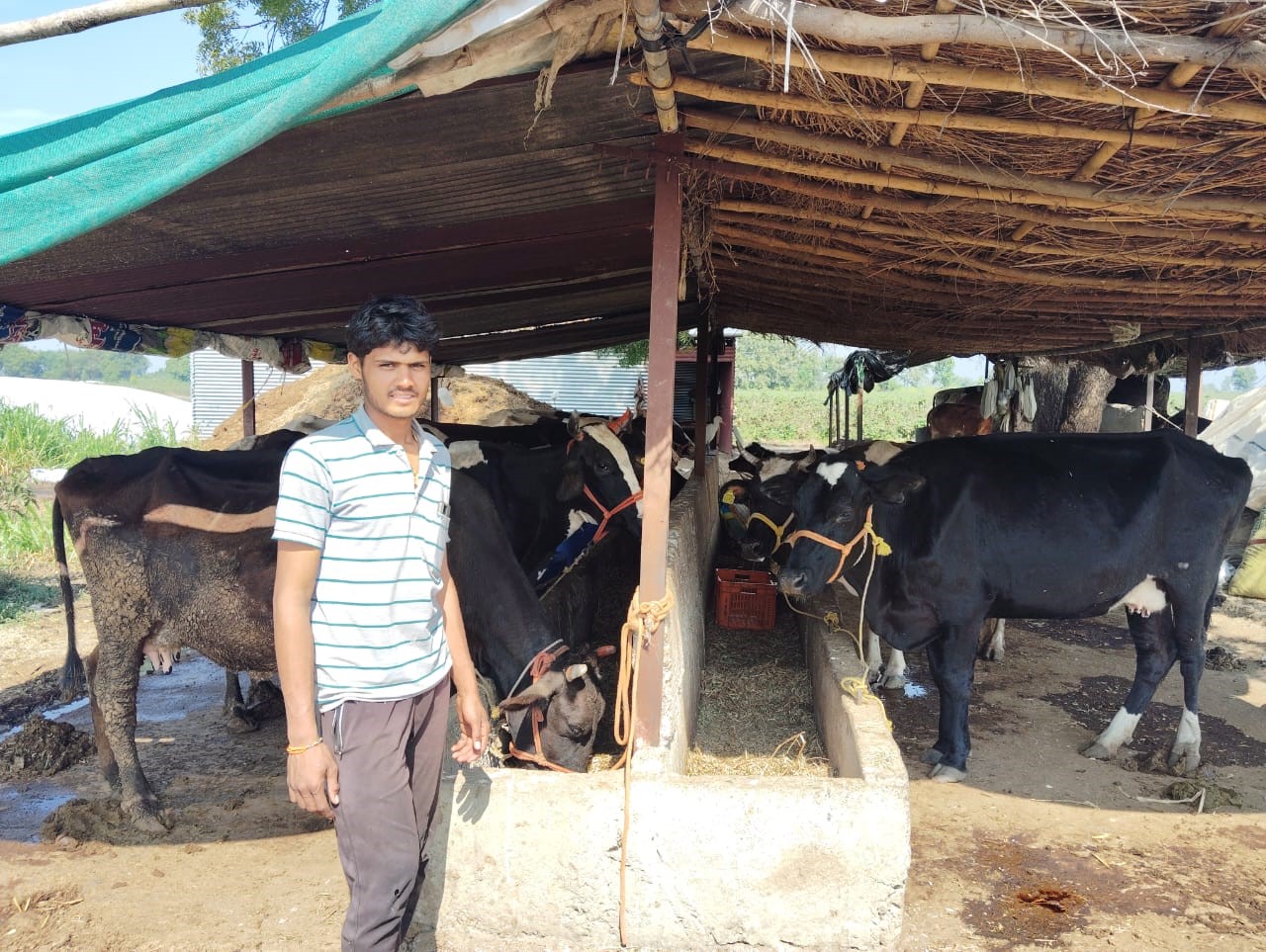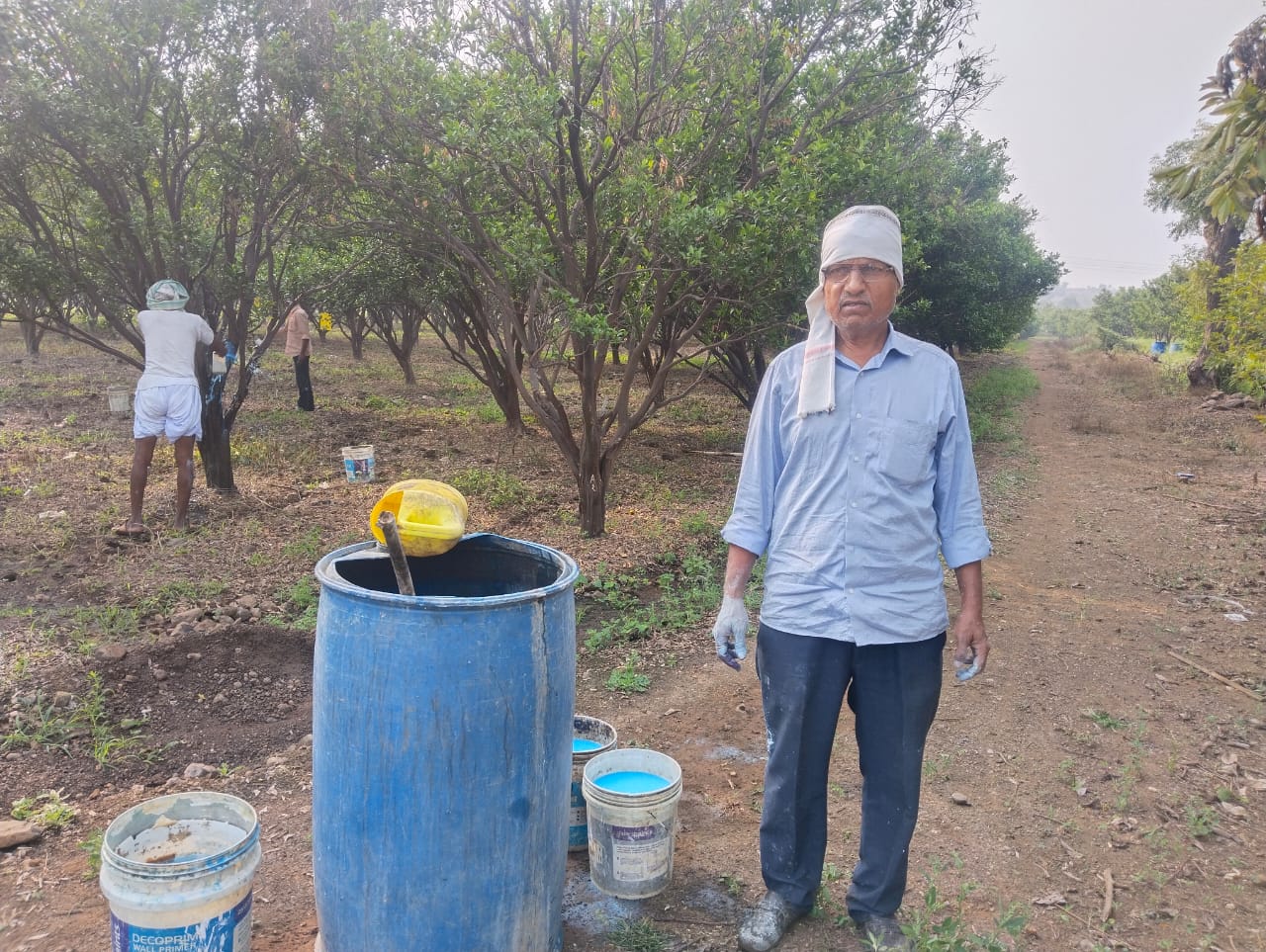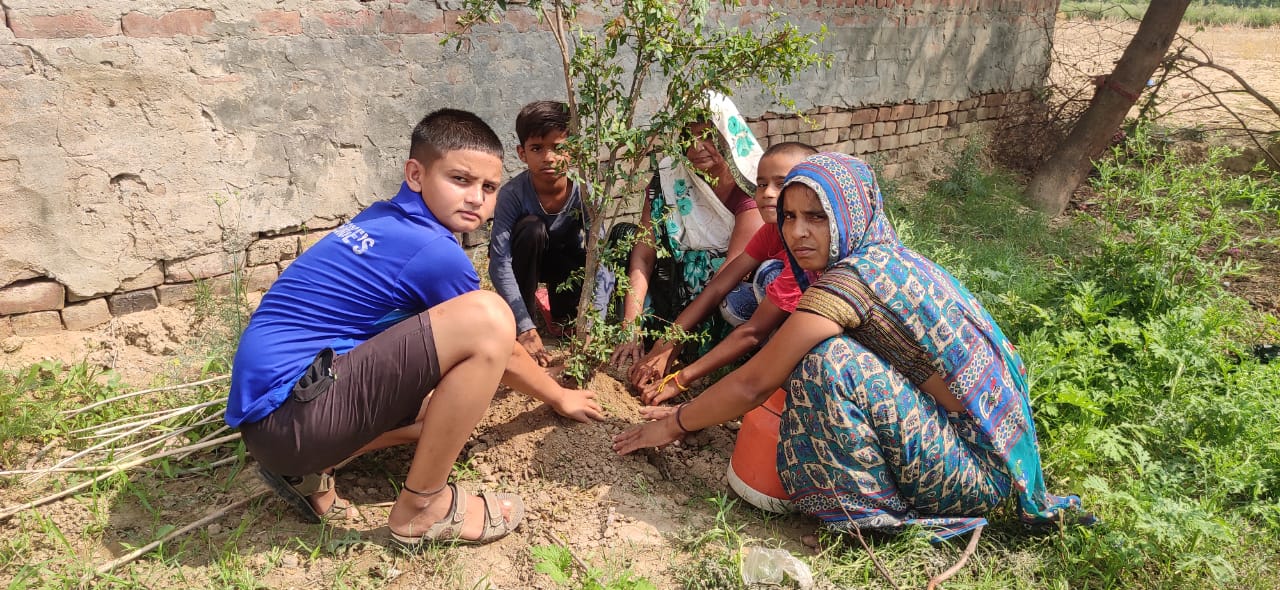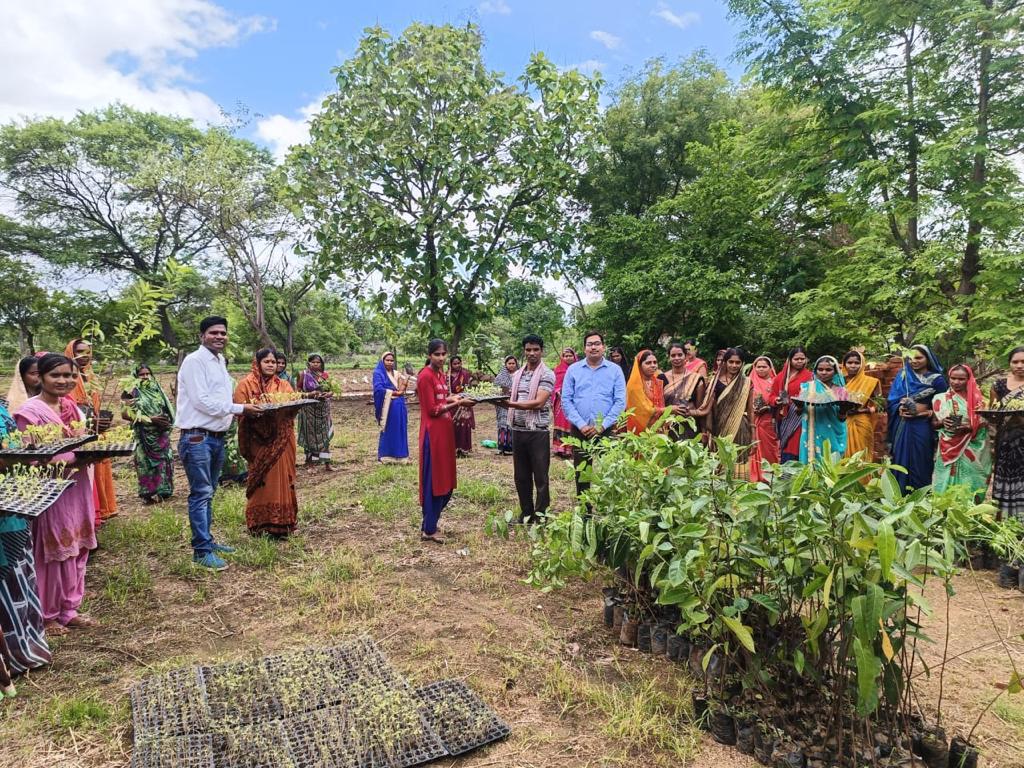Farming isn’t easy in Maharashtra’s Vidarbha and Marathwada regions, but the Smart Agri Project’s technological interventions are enabling farmers to overcome adversity and stay ahead of the curve
Agricultural systems in the Vidarbha and Marathwada regions of Maharashtra are mostly rainfed, which pose major challenges for the farmers in the areas. Not only do they get caught up in a vicious cycle of debt and poverty, they also face crop loss due to uncertain and unfavourable weather conditions, and incur major, often needless, expenditure on chemical pesticides and insecticides.
Solidaridad, dedicated to improving the livelihood of small-scale farmers, is addressing these issues in Vidarbha and Marathwada under the Smart Agri Project. In collaboration with the Vodafone Idea Foundation and Indus Towers, Solidaridad has installed useful tools such as automated weather stations, crop-view cameras, iScout traps (for insects and pests), and soil gateways in the farmers’ fields in Vidarbha and Marathwada. These have enabled them to receive real-time, region-specific weather updates, information on insects and pests feeding on their crops, and weekly agri-advisories on low-cost bio-inputs — transforming their farm management practices.
Scripting stories of transformation and success
The Smart Agri Project has been implemented among 60,000 farmers in Marathwada and 1 lakh farmers in Vidarbha. Not surprisingly, farmers in these regions have benefitted immensely from the interventions of the project, with many of them acknowledging the transformation the programme has brought about in their lives.
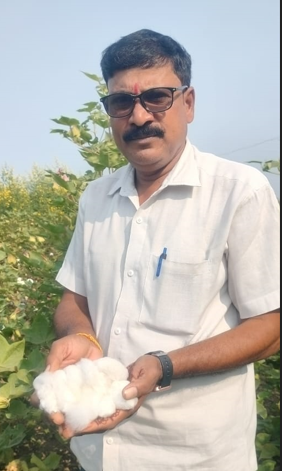
Naresh Raut (49) is a progressive cotton farmer from Waroda village in Kalmeshwar block, Nagpur district, Maharashtra. Engaged in agriculture for the last 35 years, Naresh’s association with Solidaridad started four years ago, when he was troubled by low yield, high cost of cultivation and uncertain weather. Solidaridad installed a soil gateway and a crop-view camera on his farm. The data captured by these devices was then shared to him and other farmers in the area through regular agri-advisories. The shared data has helped Naresh plan his farming activities better, and has played a crucial role in saving the crop from pest and insect attacks, as well as from adverse effects of the weather. By adopting good agricultural practices and with the regular support from Solidaridad’s field experts, Naresh has reduced his spending on chemical fertilisers by 50 percent; he is also preparing natural pest repellents right at his farm.
“The increased income (by as much as 30 percent) from agriculture has enabled me to pay for my daughters’ education. My elder daughter is preparing for NEET and the younger one will prepare for IIT entrance soon,” he says.
Devanand Bhavsingh Chavhan, a small-scale farmer in Bangaon village in the Yavatmal district of Maharashtra, has also prospered with the support from the Smart Agri Project (which he has been a part of, since 2021).

Previously, he used to spend significantly on chemical fertilisers and pesticides; he was also unaware of the correct ratio in which the doses were to be provided. As a result, he was unable to identify the economic threshold (when the pest population is likely to cause damage equal in value to the cost of control/use of pesticides) of pest and insect attacks, leading to more expenses. Today, however, Devanand’s farm is thriving — he cultivates cotton, soybean and pigeon pea, by making use of the drip-irrigation system built in his farm in 2022-23. He follows the advisories, which provide information on weather conditions, soil moisture, prevalence of insect and pest attacks, and low-cost bio-inputs. Acting on the suggestions given, Devanand was able to appropriately schedule irrigation during the dry months (June and July), besides making use of the inexpensive bio-inputs (at the right time, in the correct proportion) and integrated pest management tools on his farm. He was provided with yellow and blue sticky taps, as well as pheromone traps, to eliminate aphids, jassids, thrips, whiteflies and other pests, without having to spend anything on chemical pesticides.
“Thanks to the advisory services, we are now able to effectively plan our agricultural activities even with minimum resources. We can now identify if the insect attack has crossed a certain economic threshold level, and apply bio-inputs in the required ratio. This saves us huge costs on spraying (pesticides),” says Devanand.
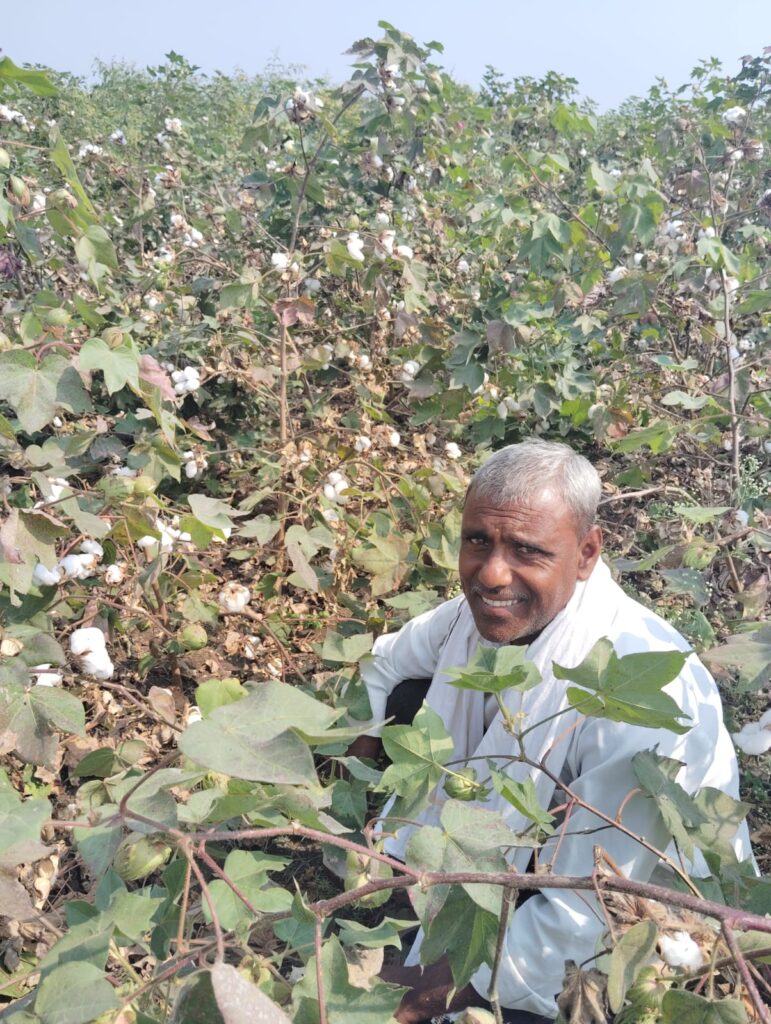
The journey of Ganesh Kisanrao Bhosale, a small farmer in Shirkalas village in Purna block, Parbhani district, Maharashtra, is another testament to the positive changes the Smart Agri Project has brought about, this time in the Marathwada region. Due to infertile soil, Ganesh resorted to chemical fertilisers and pesticides on his farm. The high cost of these inputs, coupled with the low market price for his produce, led to inadequate savings.
Ganesh joined the Smart Agri programme when it reached his village in 2022. An automated weather station installed in a neighbouring farm provides him with regular weather updates, and he also receives information on insects and pests and detailed suggestions on how to combat the menace. He also takes part in training programmes, online and offline, besides attending the farmer field school. Today, Ganesh cultivates cotton and pigeon pea, with soybean, turmeric and tomato as intercrops. He has also planted 120 sweet lime saplings in his farm. He has been able to reduce his costs by using compost manure, dashparni extract, and yellow and blue sticky traps. These measures have also enabled him to ensure a healthy cotton yield of 7-8 quintals, the vegetables being a source of additional daily income. His annual income, as a result, has increased nearly 30 percent.
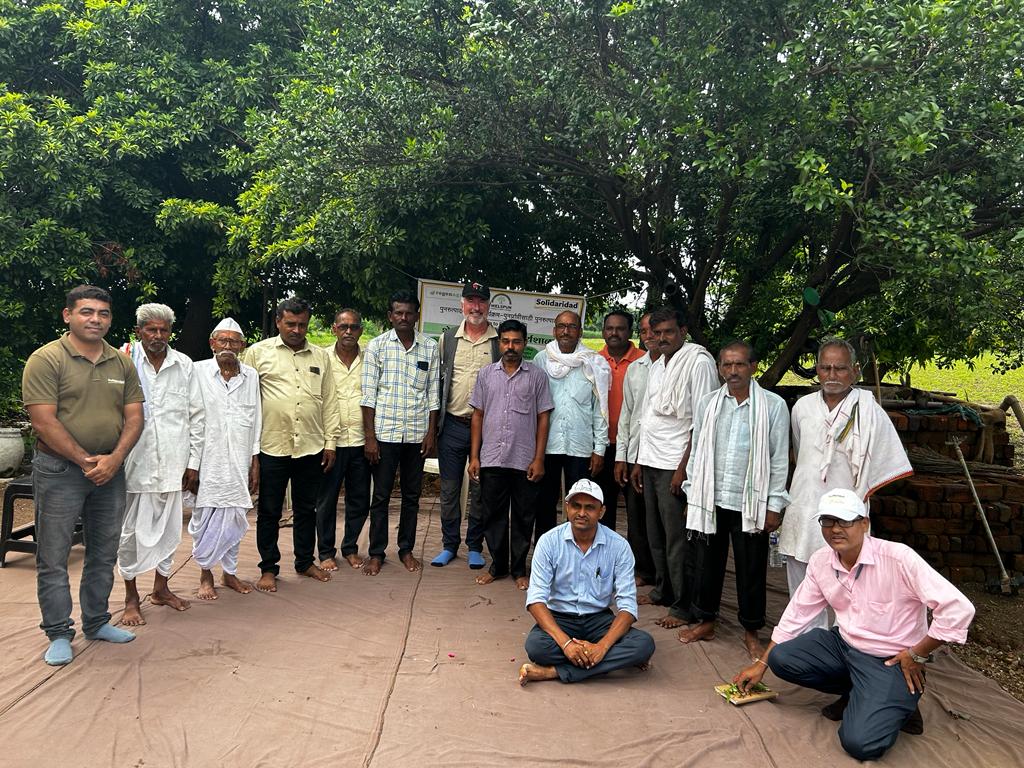
“Digitisation of agriculture is the key factor for inclusive growth. Our dedicated teams have been working round-the-clock to ensure integration of technology at the farm level to build a resilient rural landscape. With more than 200 IoT-supported sensors on the ground and weekly agro-meteorological advisories, we are supporting smallholders transition to a resilient and tech-supported sustainable model of farming,” says Anukool Nagi, Assistant General Manager–Cotton, Solidaridad. Undoubtedly, farmers in drought-prone areas must adopt sustainable agricultural practices to overcome the adversities they face. However, access to information and training on good agricultural practices is a challenge for smallholders who are often expected to bear the burden of sustainability without adequate support. Here, the Smart Agri Project bridges the gap — and demonstrates that with regular training and access to timely information through advisories, farmers are writing their own stories of transformation and success.


